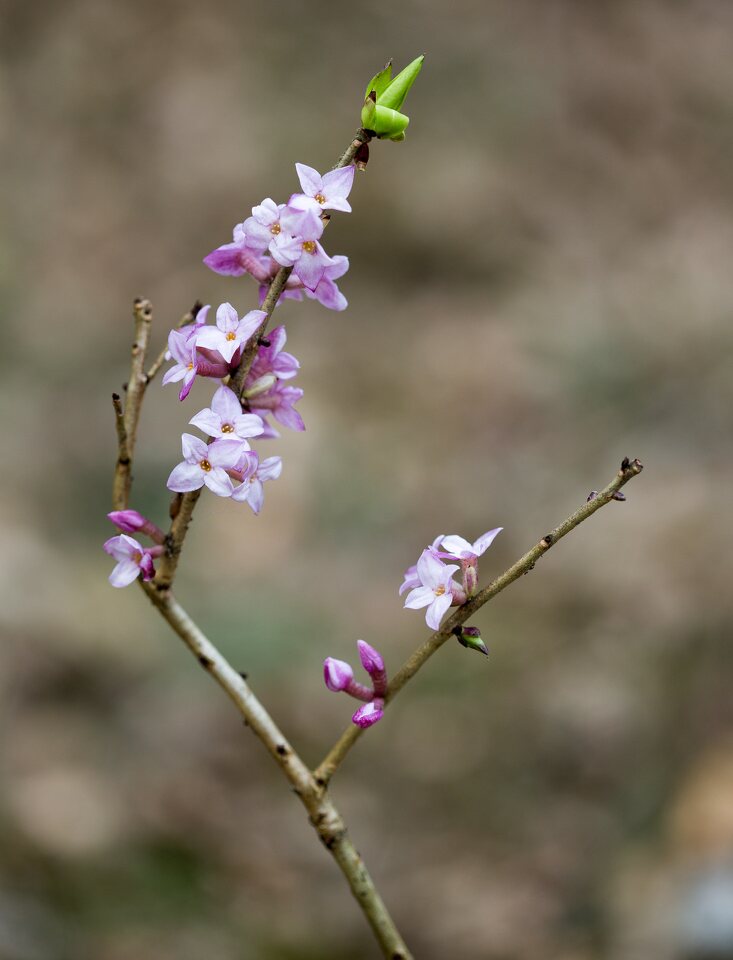
Daphne mezereum · paprastasis žalčialunkis
- mezereon, February daphne, spurge laurel, spurge olive
- Echte Seidelbast, Echt-Seidelbast, Gewöhnlicher Seidelbast, Kellerhals
- paprastasis žalčialunkis
- parastā zalktene
- wawrzynek wilczełyko
https://en.wikipedia.org/wiki/Daphne_mezereum
It is native to most of Europe and Western Asia, north to northern Scandinavia and Russia. In southern Europe it is confined to medium to higher elevations and in the subalpine vegetation zone, but descends to near sea level in northern Europe.
Daphne mezereum is very toxic because of the compounds mezerein and daphnin present especially in the berries and twigs. If poisoned, victims experience a choking sensation. Handling the fresh twigs can cause rashes and eczema in sensitive individuals. Despite this, it is commonly grown as an ornamental plant in gardens for its attractive flowers.
Lietuvoje auga ūksmėtuose, apydrėgniuose lapuočių ir mišriuose miškuose, krūmais apaugusiuose upių ir ežerų šlaituose. Visas augalas labai nuodingas, ypač uogos.
‥
0 comments
Add a comment